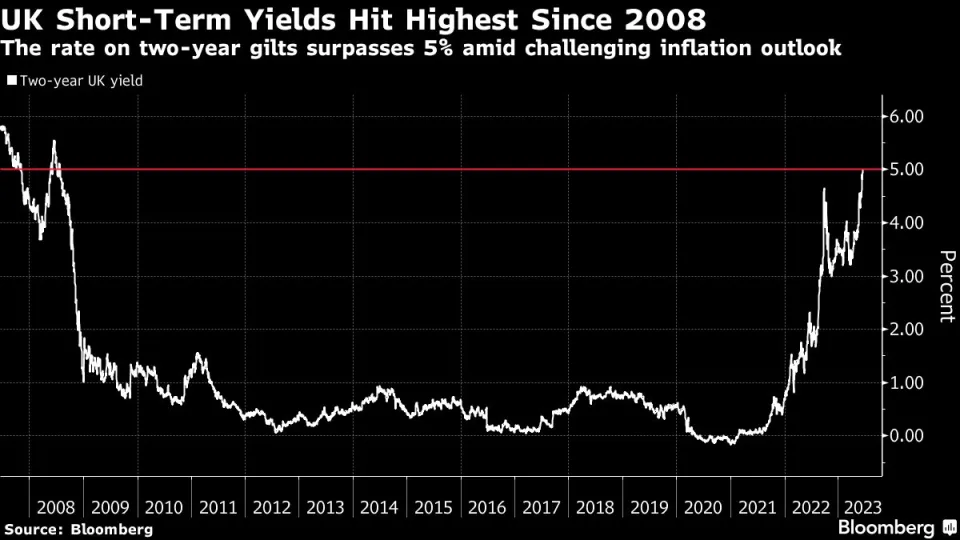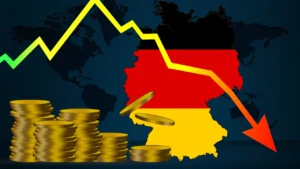
A Decade High: UK Short-Term Borrowing Costs Reach 5%
For the first time since the global financial crisis, the United Kingdom’s short-term government borrowing costs have surged to 5%. This comes amid growing concerns that the troubling inflation outlook might compel policymakers to adopt a more aggressive monetary tightening stance.
Why is this important?
- UK’s two-year bond yield has hit 5%, a level last seen during the 2008 financial crisis.
- The sharp increase in borrowing costs reflects escalating concerns about inflation, which could lead to more severe measures from monetary authorities.
- The average two-year fixed-rate home loan has also crossed the 6% threshold for the first time this year, indicating the wider impact on the economy.
A Significant Surge: The State of UK Bond Yields
The two-year bond yield, acutely sensitive to changes in central bank policy, rose by 6 basis points to reach 5% on Monday. The last time this level was seen was during the financial crisis of 2008. This latest selloff comes on the heels of anticipated inflation data on Wednesday and a decision by the Bank of England due on Thursday.
UK government bonds have been among the poorest performers among major economies this year. Two-year yields have escalated by more than 140 basis points, surpassing peaks reached following the controversial spending plans of then-Prime Minister Liz Truss.
Imogen Bachra, head of UK rates strategy at NatWest Markets, points out that there seems to be no immediate trigger to reverse the recent depreciation. Headlines around post mini-budget highs are likely to cause more worry than encouraging demand, despite appearing cheap.
A Hawkish Response to Inflation?
Core inflation, which excludes more volatile components, is expected to maintain its position at the highest level in over four decades. Even as the headline number is forecast to have slowed marginally in May, the risk of a more aggressive response from officials aiming to curb consumer prices still looms.
Traders are completely factoring in a quarter-point hike this week, with a one-in-five probability of a more significant half-point move. Money markets anticipate the policy rate to reach a peak of 5.75% by the end of the year, with a 50% chance of a final increase to 6% by early next year.




























